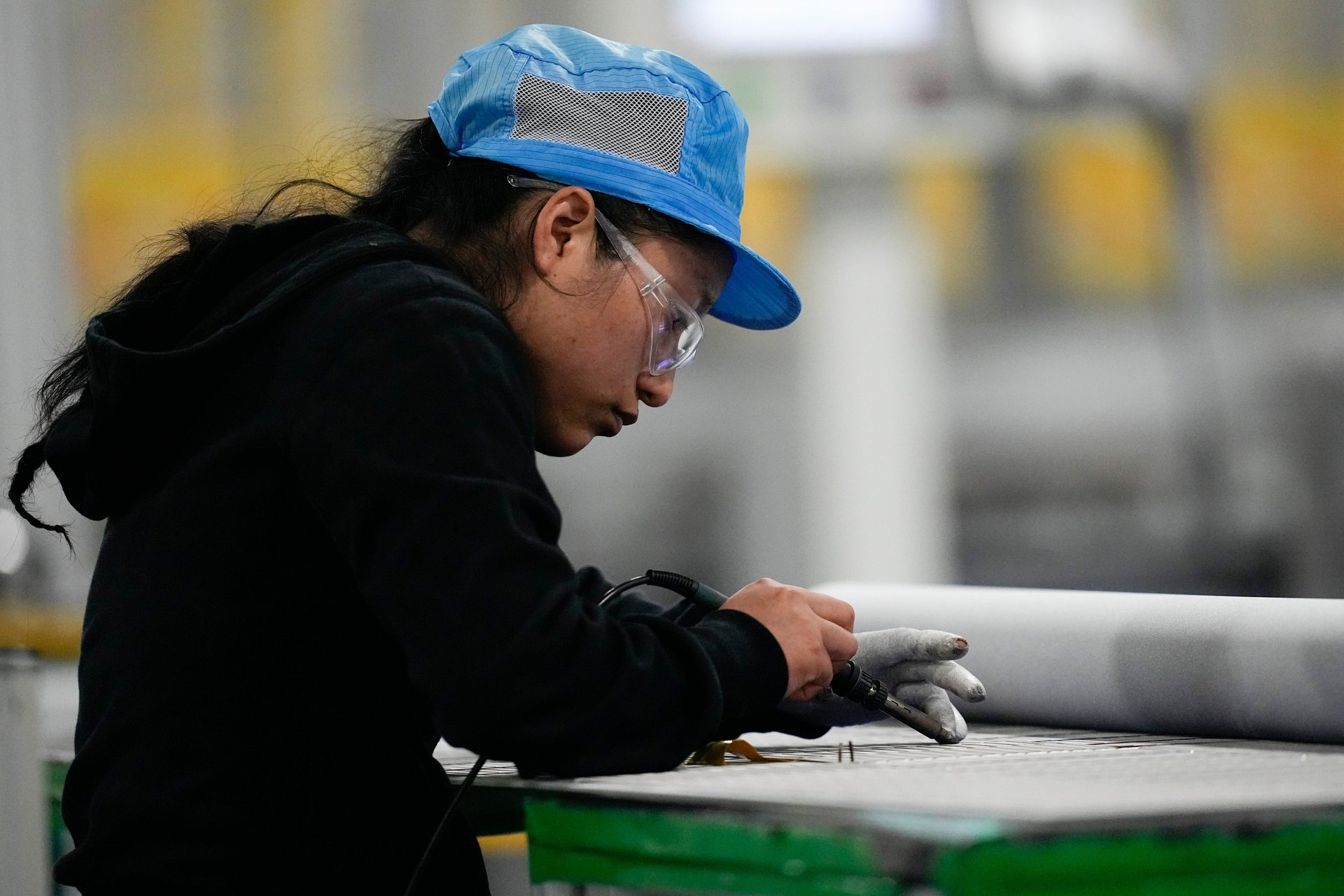US job openings fall to lowest level since March 2021 as labor market cools
U.S. employers posted 8.7 million job openings in October, the fewest since March 2021, in a sign that hiring is cooling in the face of higher interest rates yet remains at a still-healthy pace

WASHINGTON (AP) — U.S. employers posted 8.7 million job openings in October, the fewest since March 2021, in a sign that hiring is cooling in the face of higher interest rates yet remains at a still-healthy pace.
Suggested Reading
The Labor Department's report said Tuesday that openings were down significantly from 9.4 million in September.
Related Content
Layoffs were up modestly in October. And the number of Americans who quit their jobs – which generally reflects confidence in their ability to find better pay or working conditions elsewhere — was down slightly.
The drop in job openings last month was particularly steep in healthcare and social assistance, where they fell by 236,000; finance, which includes banking, insurance and real estate and which has been hit particularly hard by higher interest rates, down 217,000; and hotels, restaurants and bars, down 124,000.
Still, despite the sharp drop in October, job openings remain at historically high levels. They have now exceeded 8 million for 32 straight months — a threshold they had never reached before 2021.
U.S. hiring is slowing from the breakneck pace of the past two years. Still, employers have added a solid 239,000 jobs a month this year. And the unemployment rate has come in below 4% for 21 straight months, the longest such streak since the 1960s.
The job market has shown surprising resilience even as the Federal Reserve has raised its benchmark interest rate 11 times since March 2022 to fight the worst bout of inflation in four decades. The resulting higher borrowing costs have helped ease inflationary pressures. Consumer prices were up 3.2% in October from a year earlier, down from a peak of 9.1% in June 2022.
The Labor Department will issue the November jobs report on Friday. It is expected to show that employers added nearly 173,000 jobs last month. That would be up from 150,000 in October, in part because of the end of strikes by autoworkers and Hollywood writers and actors. The unemployment rate is expected to have remained at 3.9%, according to a survey of forecasters by the data firm FactSet.
Though unemployment remains low, 1.93 million Americans were collecting unemployment benefits in the week that ended Nov. 18, the most in two years. That suggests that those who do lose their jobs need unemployment assistance longer because it is getting harder to find new employment.
Overall, the combination of easing inflation and resilient hiring has raised hopes the Fed can manage a so-called soft landing — raising rates just enough to slow the economy and tame price increases without tipping the economy into recession. The cooling of the job market could mean a lessening of inflation pressures and less need for the Fed to keep interest rates high.
The drop in openings “will be welcome news for policymakers'' at the Fed, said Rubeela Farooqi, chief U.S. economist at High Frequency Economics. ”Overall, the labor market remains strong, but it is cooling. And wages and inflation are decelerating. The data support our view that rates are at a peak and the Fed’s next move will be a rate cut, likely in (the second quarter of) 2024.”